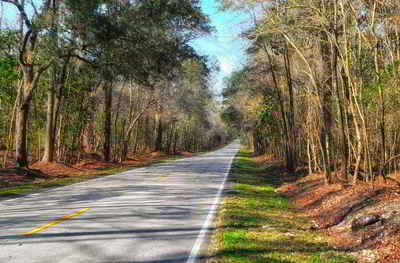South Carolina Counties
South Carolina is made up of fourty-six counties. They range in size from 392 square miles (1,016 square kilometers) in the case of Calhoun County to 1,358 square miles (3,517 square kilometers) in the case of Charleston County. The least populous county is McCormick County, with only 9,958 residents, while the most populous county is Greenville County, with a population of 395,357, despite the state's most populous city, Columbia, being located in Richland County.Aiken County, South Carolina
Aiken County Education, Geography, and History

Aiken County is a county located in the state of South Carolina. Based on the 2010 census, its population was 160,099. Its county seat
and largest city is Aiken.
Aiken County is a part of the Augusta-Richmond County, GA-SC Metropolitan Statistical Area. It is located in the Piedmont region.
Etymology - Origin of Aiken County Name
Aiken County and its county seat, the town of Aiken, were named for William Aiken (1806-1831), president of the South Carolina Railroad.
Demographics:
County QuickFacts: CensusBureau Quick Facts
Aiken County History
Aiken County and its county seat, the town of Aiken, were named for William Aiken (1806-1831), president of the South Carolina Railroad. The county was formed in 1871 from parts of Orangeburg, Lexington, Edgefield, and Barnwell counties. The area was sparsely settled until the 1830s,when the South Carolina Railroad was built connecting Charleston to the town of Hamburg on the Savannah River, with the town of Aiken being established as a depot. In the1870s Aiken became a winter resort for wealthy Northerners, and it remains popular with horse trainers and riders. The federal government chose Aiken County in the 1950s to be the site of a hydrogen bomb plant, the Savannah River Site. James F. Byrnes (1879-1972) began his legal and political careers in Aiken before going on to become United States Congressman and senator, secretary of state, Supreme Court justice, and governor of SouthCarolina. Other prominent residents of the county were William Gregg (1800-1867), who built the state's first textile mill at Graniteville in 1846, and governor and United States senator James Henry Hammond (1807-1864).
Geography: Land and Water
The county seat of Aiken County is Aiken, SC. As reported by the Census Bureau, the county has a total area of
1,080 square miles (2,798 km2), of which, 1,073 square miles (2,778 km2) of it is land and 8 square miles (20 km2)
of it (0.72%) is water.
Neighboring Counties
Bordering counties are as follows:
- Saluda County, South Carolina - north
- Lexington County, South Carolina - northeast
- Orangeburg County, South Carolina - east
- Barnwell County, South Carolina - south
- Burke County, Georgia - southwest
- Edgefield County, South Carolina - west
- Richmond County, Georgia - west
Education







